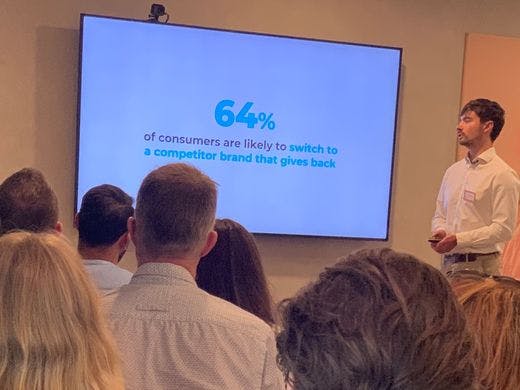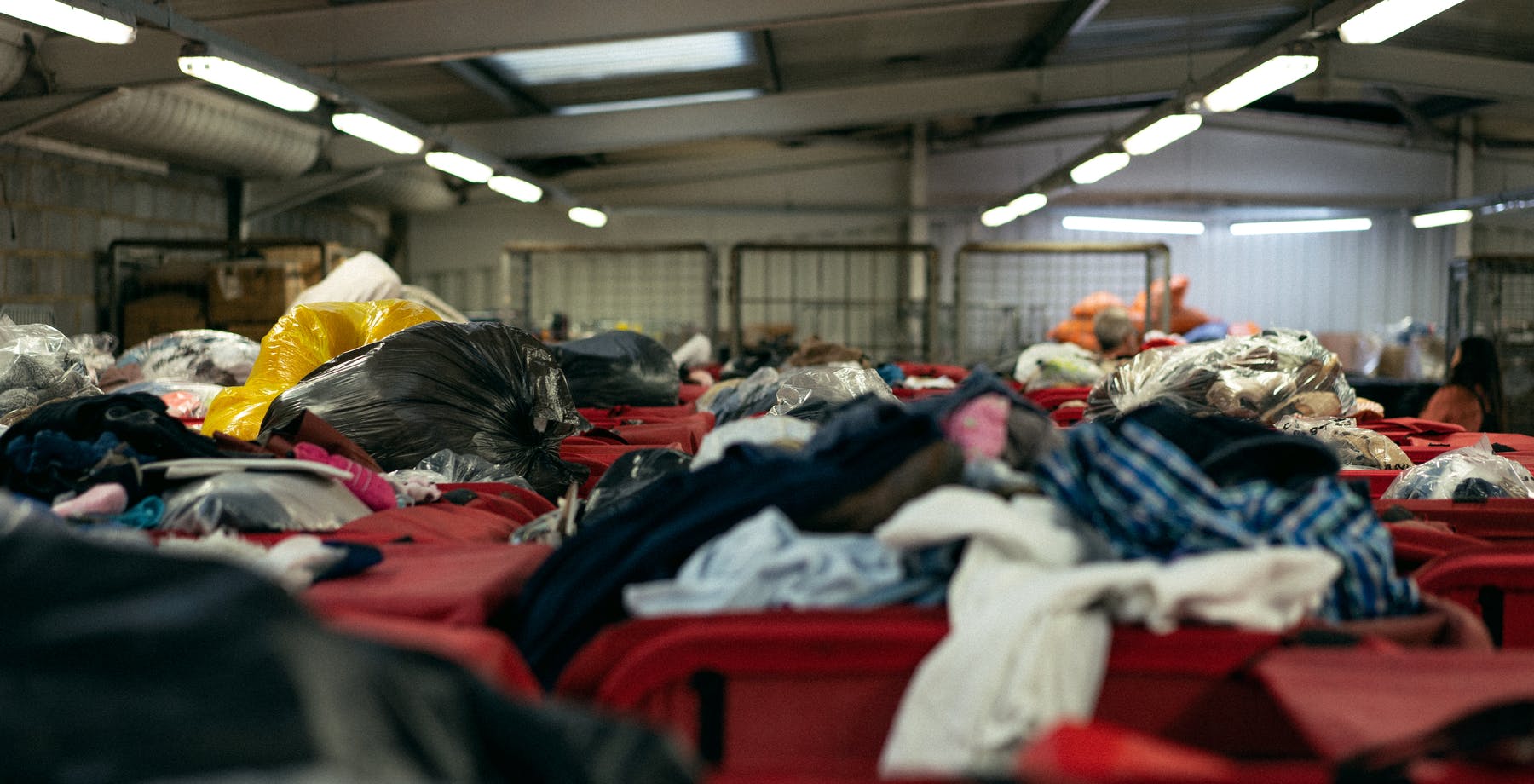With businesses ranging from carbon-backed cryptocurrency, through to fertility benefits providers and upcycled pet food we provided a wide view of the landscape.
Two of the presenting businesses – Shellworks and Algramo – are working on sustainable packaging and it’s a space we’re very excited about because of the potential positive impact on the planet. In the UK alone, plastic packaging contributes for almost 70% of plastic waste (WRAP).
The consumer push
With over 141 million tonnes of plastic packaging produced across the globe annually, the climate impact of 1.8 billion tonnes of carbon emissions from its production, use and disposal isn’t surprising (WRAP). Armed with more information about the scale of the problem, consumers are one of the main driving forces of innovation in this space. Demand for sustainable packaging is on the rise, with a report by Drapers stating that 64% of consumers said they would be more likely to purchase from a brand or retailer that used sustainable packaging. However, price and convenience still reign supreme. For those brands looking to incorporate sustainable packaging, it’s worth considering how the cost of this is passed onto consumers, as willingness to pay could be wiped out by current inflationary pressures.
Regulatory pressure has also been a core driver in changing how businesses approach packaging. The UK Plastics Pact has over 100 members across retail and consumer companies, and the plastics value chain, with the aim of achieving four targets to reduce, reuse and innovate new packaging by 2025. However, the UK Plastic Packaging Tax which came into effect from 1st April 2022 has forced businesses to act faster, charging £200 per tonne on plastic packaging that contains less than 30% of recycled plastic.
Finally, funding has also increased in recent months, with players such as Israel-based TIPA (compostable, flexible packaging) raising a $130m Series C in January this year and London-based Notpla (seaweed and plant-based packaging) raising a £10m Series A in December 2021.
Making the switch
Frugi is one example of a business making the switch. In 2020, the organic clothing brand swapped to GM-free corn starch packaging which can be home-composted or sent to an industrial composting facility and be recycled. With single-use plastic hangers being a large problem in fashion, Frugi also uses 100% recyclable cardboard hangers which hold reusable metal clips to enable the same hanger to hold bottom garments. Transparency of the journey and iterations over time have been important for Frugi – it’s a key part of building their customer relationships.
Some brands have already switched to recyclable or sustainable packaging but there’s a gap in consumer awareness and understanding. Coca-Cola in partnership with Coca-Cola Europacific Partners recently announced it’s attaching caps to its plastic bottles to reduce bottle caps being discarded – making it easier for consumers to recycle the whole bottle. Simple changes in design like this mean that driving consumer behaviour change can be a smoother process.
The holy trinity: biodegradable, refillable and returnable
Biodegradable packaging has often been a source of confusion for consumers and brands alike. Some biodegradable products break down into microplastics and industrial-compostable solutions can only break down in a controlled temperature and pressure environment which can’t be replicated in a consumer’s home. However, Shellworks which we’ve invested in since 2021, produces plastic-free, home-compostable packaging solutions. Its proprietary technology, with vegan Vivomer polymer, addresses the multi-material issues of pumps, droppers and lipsticks – a wasteful problem that has plagued the cosmetics industry. Emerging beauty brands such as BYBI and Liha Beauty are successfully using the product.
Another business that presented at the Showcase, Algramo, provides smart refillable packaging to drive circularity. Currently focused on home care, personal care and pet food, the business treats packaging as a ‘wallet’, with a Radio Frequency Identification (RFID) chip registering every refill a customer makes, to help them understand their positive impact on the planet and providing brands the ability to reward customers for their sustainable choice. It recently launched an in-store automated refill station for liquid laundry detergents in partnership with Lidl in the UK. Beyond the circularity of the model, the data opportunity here for retailers and Consumer Product Groups is particularly interesting, as the engagement with the product could build behavioural data on customers to drive marketing efforts.
Working with the likes of Decathlon, RePack offers reusable packaging solutions for online retailers. The durable bags fold into a letter size when empty, making it easy for a customer to return. RePack simplified its communication around its returnable packaging with QR codes, various styles of text and clear visual instructions on how a consumer would return the bags – making it easier to return the prepaid pack through the post.
For those brands looking to explore different business models such as Click & Collect, rental or resale, returnable packaging provides a solution that can be used to tackle each of these in a much more environmentally friendly method.
While there is no silver bullet to the packaging and plastics problem, holding Showcases such as this help to arm businesses with the information to make the best decision for their company, their customers and the planet.

